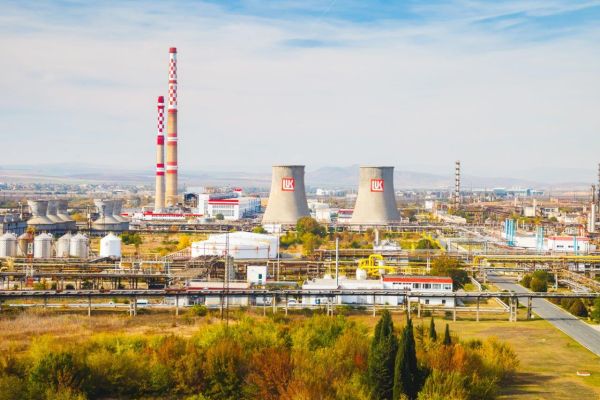
Lukoil’s Bulgarian subsidiary, Lukoil Neftohim Burgas, will not be sold to a Qatari-British consortium, the company’s shareholder LITASCO SA confirmed, dispelling recent media reports.
The statement, issued on November 7, refutes claims published by the Financial Times that the Russian energy company was preparing to sell its stake in the Burgas-based refinery, a strategic asset and the largest of its kind in the Balkans.
The Financial Times article, citing unnamed sources, suggested that a potential deal to transfer Lukoil’s majority ownership in the refinery to a Qatari-British group was underway and might conclude by the end of the year.
However, LITASCO, the Switzerland-based trading subsidiary of Lukoil, characterized these reports as “inaccurate and misleading.”
“There are no ongoing discussions with the Qatari-British consortium mentioned in these reports, nor has there been any communication with the Russian Federation authorities regarding this matter,” LITASCO SA emphasized in its statement.
The company assured that, if there were any significant developments affecting its Bulgarian operations, it would fully disclose these to Bulgarian authorities, stakeholders, and other interested parties.
Lukoil clarified that while various strategic options for its Bulgarian operations are being reviewed, no definitive plan has been agreed upon, nor has any specific counterparty been identified.
The evaluation process, Lukoil noted, is being carried out in collaboration with independent consultants and prominent players in the market, underscoring the company’s commitment to transparency and regulatory compliance.
The report had sparked speculation in Bulgaria, where Lukoil Neftohim Burgas plays a crucial role in the economy and is one of the country’s largest fuel suppliers.
Acting Minister of Energy Vladimir Malinov also commented on the report, stating that neither he nor the Ministry of Energy had any information about a pending sale of the Burgas refinery.
The refinery in Burgas, founded in 1964, remains one of the largest and oldest oil processing facilities in Southeast Europe.
In recent years, its future has attracted attention amid shifting European energy policies, geopolitical tensions, and discussions on reducing dependence on Russian energy supplies.
Despite the company’s statement, industry analysts suggest that Lukoil’s stake in Neftohim Burgas may still attract potential buyers if the company chooses to exit the Bulgarian market.
In response, Lukoil reiterated its commitment to maintaining transparent business practices and to engaging with Bulgarian authorities to ensure that any potential transition aligns with local interests and market regulations.
With energy markets under strain due to geopolitical developments and supply chain issues, the fate of the Burgas refinery remains of high importance to Bulgarian energy security and to stakeholders throughout the region.
